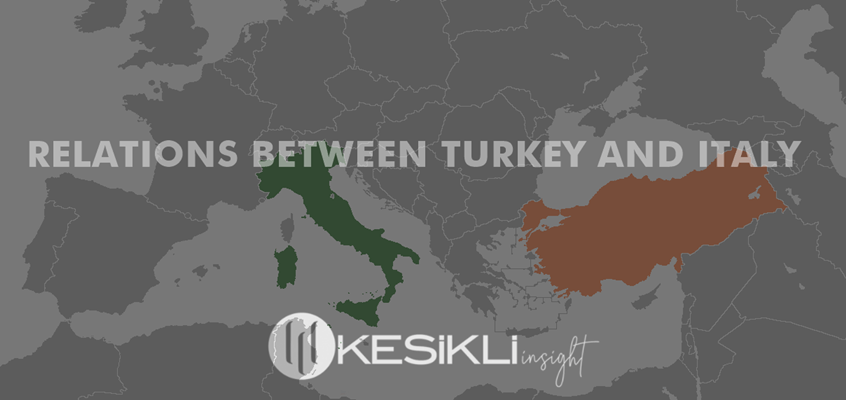Foreign direct investments in Turkey took off after the 90’s where the country initiated its global economic integration. However, FDI levels remained below global standards until 2001. After banking reforms led by the IMF at the beginning of 2000s, FDI saw spiked significantly. Enacted in 2003, the Foreign Direct Investment Act (FDIA) No:4875 (OG: 17.06.2003) secured the rights of international investors and allowed for their equal treatment.
- Basic principles designated in Turkish FDIA are as follows:
- Freedom to invest and treatment as national investments.
- Expropriation due to public interest and relevant compensation.
- Freedom to transfer income abroad.
- Non-cash capital valuation according to Turkish Commercial Law.
- Admission of international arbitration as an alternative dispute resolution mechanism.
- Convenient employment environment.
It has to be noted that, in addition to FDIA, there are bilateral and multilateral treaties to secure the rights of foreign investors and encourage capital flows internationally. Multilateral and bilateral investment treaties (MIT’s/BIT’s) are in place which guarantee the rights of foreign investors. Each of these treaties fundamentally involves securing the rights of investors, promotion of bilateral investments, means for dispute settlements, and clauses against expropriations. Furthermore, the status of investments in the case of contingencies such as war, uprising, revolution, or martial law are identified and insured. The compensation and accountability of the host state in the case of direct and indirect expropriation are usually included. Additionally, the treaties guarantee the equal treatment of the foreign investor with that of the domestic investor. Multilateral and bilateral investment treaties solidify the security provided to foreign investors and thus encourage more FDI.
Freedom to Invest and National Treatment
Unless stipulated by international agreements and other special laws:
1. Foreign investors are free to make foreign direct investments in Turkey,
2. Foreign investors shall be subject to equal treatment with domestic investors.
Due to the globalization and macroeconomic balance, the free trade system is based on unhindered flows of capital through borders. Hence, any investor with the necessary capital is free to bring funds into Turkey and invest. Prior to FDIA, prospective foreign direct investments in Turkey were required to obtain authorization. Nonetheless, by means of FDIA, a notification-based system was adopted which is considerably more in accordance with freedom to invest. Consequently, any foreign investor can freely establish or acquire companies in Turkey without restriction and requirement of permission. It should be noted that special provisions, such as legislation of protected areas or on mining law or on public improvements are reserved -- which means they may prevent execution of Article 3/a and may impede foreign investors from being involved in FDI’s.
According to Article 3/b, foreign and domestic investors are both treated equally in a legal context. Both investors are subject to the same regulations regarding commercial activities such as taxation, employment practices and property rights. Equal footing ensures that domestic investors cannot benefit from privileges and consequently cannot have a competitive advantage -- equality must be absolute.
It is worth mentioning that verba legis of art. 3 indicates equal treatment of domestic and foreign investors and not equal treatment of domestic and foreign investments. This is owing to the fact that FDI’s are usually established in Turkey, thus they are Turkish legal entities. However, the difference arises from their ownership where one is owned domestically and another is owned by a foreign investor. Therefore, art. 3 specifically states investors rather than investments.
* Expropriation and Nationalization*
According to art. 3/b, Foreign direct investments shall not be expropriated or nationalized, except for public interest and upon compensation in accordance with due process of law.
One of the primary fears of foreign investors is to be dispossessed of property by the state. The political environment and lack of private property rights may substantially be disincentives for FDI’s. Therefore art. 3/b asserts an obvious protection for foreign investors against expropriation of any kind.
As is well known, expropriation is defined as taking foreign investor’s property for a public use. As art. 3/b states that it is deemed illegal when the expropriation is groundless and without compensation as also guaranteed under Turkish Constitution Article 46 and 47.
It is also worth underlining that not just direct expropriation, which means dispossession of property, is included under the concept of expropriation but also indirect expropriation. The host state can obstruct execution of rights of the foreign investor in order to exploit the FDI or to prevent FDI’s proper functioning. Such practices can include excessive and arbitrary taxation, infringement of investor’s intellectual property rights, overcharging on interest rates, interference in employment and wage decisions, prevention of export or imports, or depriving of raw materials. Even though art. 3/b does not make a distinction between direct and indirect expropriation, both are covered and deemed illegal due to art. 3/b. In case of expropriation the foreign investor should be compensated properly, otherwise the state shall be held accountable according to Article 3/b.
Transfers
Article 3/c of FDIA states: Foreign investors can freely transfer abroad: net profits, dividends, proceeds from the sale or liquidation of all or any part of an investment, compensation payments, amounts arising from license, management and similar agreements, and reimbursements and interest payments arising from foreign loans through banks or special financial institutions.
To earn profit is the main objective of FDI. After the realization, the investor will most likely prefer to transfer the realized earnings to its country of origin or abroad (to be used in different fields of business.) Thus, assurance of transfer is extremely important for the encouragement of FDI’s. Lack of assurance of keeping and moving the earnings will discourage the foreign investor from maintaining its capital within the country.
Transfers are not restricted to any types of currency or particular banks. The investor can freely move its funds out of Turkey by any mean or type it prefers.
Dispute Settlement
According to art. 3/e, “For the settlement of disputes arising from investment agreements subject to private law and investment disputes arising from public service concessions contracts and conditions which are concluded with foreign investors, foreign investors can apply either to the authorized local courts, or to national or international arbitration or other means of dispute settlement, provided that the conditions in the related regulations are fulfilled and the parties agree thereon.”
Article 3/e gives the right to apply to international arbitration on investment disputes in the presence of an arbitration clause or agreement. However, this provision does not bring a novel and innovative right to foreign investors. International arbitration is also regulated under International Arbitration Act no.4686 (OG: 05.07.2001). But Turkish lawmakers wanted to underline the existence of this right because prior to this provision, arbitrability of public service concessions contracts were controversial. Currently it is well known that public service concession contracts are arbitrable. However, lawmakers wanted to be rid of the controversy, thus they included this provision.
Valuation of Non-Cash Capital
“Non-cash capital is valued within the regulations of Turkish Commercial Law. In case that stocks and bonds of companies established abroad are used as foreign capital share of foreign investors, the values determined by the relevant authorities in the home country, or by the experts designated by the courts of the home country, or any other international institutions performing valuations will be accepted.” says art. 3/f of FDIA.
Article 2 states that sources of FDI can be non-cash capital such as stocks and bonds. So, in case of using such instruments as foreign capital in establishment or in acquisition of FDI, the values are determined by rules of country of origin or by internationally accredited agencies. This provides proper valuation of the underlying assets and allows for more accurate identification of capital. Additionally, valuation done by one’s country of origin protects him/her against the disputes that might arise from incorrect valuation and delivers a comfortable investment environment.
Employment of Expatriates
According to art. 3/g, *“Work permits are issued by the Ministry of Labour and Social Security for foreign personnel to be employed in the companies, branches and entities established within the scope of this Law.”*
Regulation for Employment of Foreign Personnel in Foreign Direct Investments asserts that work permits for foreign personnel only cover “key employees” for the operation of FDI. Article 4 of the regulation defines Key Employees as:
- Executives of the company
- Managers of whole of the company
- Supervisors of administrative or technical personnel
- People authorized to initiate, terminate, or make an offer related to employment
- People with essential knowledge of the company’s services, methods, or administration
- A maximum of one person is authorized by the company’s headquarters to work in liaison offices.
Personnel not defined above will not be considered a “Key Employee” and shall not be given work permits within the scope of art. 3/g.
@Ömer Kesikli
Let's Get Connected!



